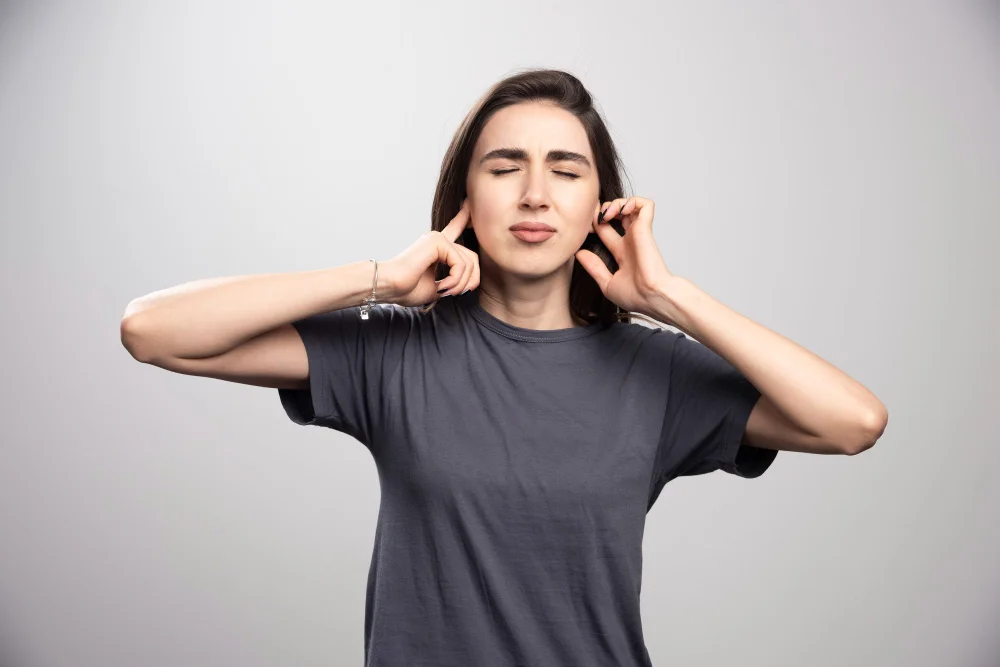Tinnitus, often described as a ringing, buzzing, or hissing sound in the ears, can be a persistent and distressing condition. It affects millions of individuals worldwide, impacting their daily lives and overall well-being. While there’s no one-size-fits-all solution for tinnitus, lifestyle changes and strategies can significantly improve its management and provide relief. Tinnitus, its types, and look into lifestyle changes that can help quiet the ringing in your ears. Whether you’re seeking guidance on managing tinnitus or seeking specialized care from a tinnitus specialist in London or the UK for pulsatile tinnitus.
Understanding Tinnitus: The Ringing in Your Ears
Tinnitus is a perception of sound in the ears when no external sound source is present. It can manifest as various sounds, including ringing, buzzing, hissing, or even pulsing sensations. Tinnitus can be categorized into two primary types: subjective tinnitus, where only the person experiencing it can hear the sound, and objective tinnitus, where the sound can be heard by both the individual and a healthcare provider using specialized equipment.
Subjective tinnitus is the most common type and can result from various underlying causes, such as exposure to loud noise, age-related hearing loss, earwax blockage, or underlying medical conditions. Objective tinnitus, on the other hand, is often associated with vascular or muscular issues and requires specialized evaluation and treatment.
Lifestyle Changes for Tinnitus Management
Tinnitus management requires a multifaceted approach that combines medical intervention with lifestyle adjustments. Here, we delve deeper into lifestyle changes that can significantly improve tinnitus symptoms:
- Noise Management: Protecting your ears from loud noises is paramount. Prolonged exposure to loud environments can exacerbate tinnitus. Consider using earplugs or noise-canceling headphones when attending concerts, sporting events, or working in noisy settings.
- Stress Reduction: Stress can amplify tinnitus symptoms. High-stress levels trigger physiological responses in the body that can worsen the perception of tinnitus. Practicing stress-reduction techniques, such as mindfulness meditation, deep breathing exercises, or yoga, can help alleviate the emotional burden of tinnitus.
- Dietary Considerations: Certain foods and beverages can exacerbate tinnitus for some individuals. Items high in caffeine or alcohol may contribute to increased tinnitus perception. It’s advisable to limit or avoid these substances. On the flip side, maintaining a balanced diet rich in antioxidants and essential nutrients can support overall ear health.
- Regular Exercise: Regular physical activity offers numerous health benefits, including improved blood circulation. This enhanced circulation can positively impact ear health and may reduce the severity of tinnitus for some individuals. Consult with a healthcare provider before starting a new exercise regimen to ensure it aligns with your specific needs and conditions.
- Healthy Sleep Habits: Quality sleep is essential for overall well-being, and it can also influence tinnitus. Inconsistent sleep patterns and discomfort during the night can exacerbate tinnitus symptoms. Maintain a consistent sleep schedule and create a comfortable sleep environment to minimize disruptions caused by tinnitus.
- Tinnitus Retraining Therapy (TRT): For those struggling to cope with the persistent sound of tinnitus, specialized therapies like Tinnitus Retraining Therapy (TRT) can be immensely beneficial. TRT involves a combination of sound therapy and counseling. The goal is to desensitize the brain to the tinnitus sound, reducing its impact on daily life. TRT is typically administered by trained audiologists or tinnitus specialists.
- Consulting a Tinnitus Specialist: If your tinnitus is severe, persistent, or significantly affects your quality of life, seeking care from a pulsate tinnitus specialist in the UK is advisable. These specialists have expertise in evaluating and treating tinnitus, offering tailored approaches and interventions to address your unique situation.
Pulsatile Tinnitus: When Your Heartbeat Rings in Your Ears
Pulsatile tinnitus is a unique form of tinnitus characterized by a rhythmic sound that synchronizes with your heartbeat. Unlike the more common continuous tinnitus, which various factors can cause, pulsatile tinnitus often points to specific underlying vascular or circulatory issues. The sound experienced in pulsatile tinnitus is often described as a rhythmic whooshing, thumping, or pulsing sensation in the ears. It can be disconcerting and interfere with daily activities, sleep, and concentration.
The most common underlying causes of pulsatile tinnitus include:
1. Vascular Abnormalities: Pulsatile tinnitus can result from anomalies in blood vessels near the ear. Conditions like arteriovenous malformations (AVMs), vascular tumors, or high blood pressure can lead to turbulent blood flow that generates pulsatile sound.
2. Atherosclerosis: Narrowing or hardening of the arteries, known as atherosclerosis, can disrupt blood flow and create pulsatile tinnitus.
3. High Blood Pressure (Hypertension): Elevated blood pressure can contribute to pulsatile tinnitus. Managing hypertension is a critical step in addressing this form of tinnitus.
4. Blood Flow Disorders: Various disorders affecting blood flow, including conditions like carotid artery disease or anemia, can trigger pulsatile tinnitus.
Conclusion
Tinnitus can be challenging, but with the right lifestyle changes and guidance from a tinnitus specialist, you can take control of your tinnitus and reduce its impact on your life. For expert care and personalized treatment plans, consider visiting their website. Their experienced team of specialists is dedicated to helping individuals manage tinnitus and achieve a better quality of life. Don’t let tinnitus disrupt your daily activities and well-being – take the next step towards quieter, more peaceful ears.


















